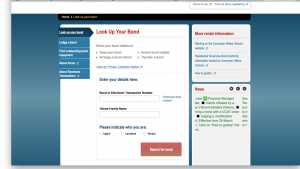Repatriation article by guest contributor Patti McCarthy: Author, Coach and Trainer
Have you ever seen a video of a satellite screaming back to earth and then plunging into the sea, where it rocks back and forth trying to stabilise itself? This is what it feels like to repatriate.
The months, weeks and finally days and hours of getting ready to leave start slowly, but as the time grows nearer and the ‘To Do’ list doesn’t seem to get any shorter. The moments start to race by and you feel yourself like that satellite, flying faster and faster until finally, you are literally hurtling towards departure. Inevitably, you leave all kinds of space junk behind you, from the unfinished project at work to the garden furniture you couldn’t sell on Gumtree, the friends you didn’t get to say goodbye to and the refunds you never retrieved on the gas bottles from the barbecue.
There is no time to think of all these, however, as the future is coming up to meet you as quickly as the past is disappearing behind you. As emotionally and physically exhausted as you are, you know you need to focus on making a smooth re-entry. You are sad to be leaving, but excited about going back and confident that your old friends will rally round you, be delighted to have you back, be throwing dinner parties for you and keen to hear of your adventures abroad…
You’re on your own, kid.
More likely, unfortunately, is that you crash into the metaphorical sea and are left bobbing around on your own. People don’t come out to help you – they probably don’t even realise that you need help. They ‘leave you to get sorted’, but actually they leave you in limbo and poised for a rapid downwards spiral into regret and loneliness. There are many reasons for this and almost none of them are personal, but almost all of them feel so. People are busy with their own lives, they do genuinely want to give you some space and they feel that if you are back, then you can catch up in a few weeks’ time…Not surprisingly, the so-called ‘Honeymoon Period’ associated with moving can be very brief where repatriation is concerned. You end up with far too much ‘space’ when at least one partner has no job and you are passing time in a serviced apartment or staying with relatives, waiting for your shipment to clear customs, for your lease to start, for the term to begin – for your new LIFE to begin.
So feel the fear and do it anyway…
So, recognise this. Embrace it. Grasp the nettle! The French say, “In every relationship, there is one who kisses and one who offers their cheek” and it’s time for you to pucker up. Don’t wait for the phone to ring, don’t wait to be invited somewhere, organise it yourself. Call your old friends and arrange those dinners – they may be glad to have you back, but at this point, you need them far more than they need you. Get a temporary gym membership, hit Google and find out what you can join locally, where you could volunteer, where other people like you hang out. Don’t wait to get your house sorted out and everything unpacked before you start on creating a new network of friends – friends are much more important than a tidy house and if you do leave it for another two months, you may not be feeling very sociable.
It won’t necessarily be easy, but getting out there and trying is a lot more stimulating than sitting at home waiting for the phone to ring. I’m certain that as one door closes, another one always opens, but it’s up to you to make sure you are poised in the doorway for when it does.
Note: I work as an expatriate coach and cross-cultural trainer and I have recently repatriated to England, having lived overseas for 27 of the last 30 years. I’ve been back for a week and I’m already aware of the emotional roller coaster lurking on the horizon, so I’m going to take my own advice and start phoning people. However…I’d really love it if you called me too – to say “Welcome Back!” or to tell me you miss me…
Email: [email protected]
Website: www.culturalchemistry.com.au
FREE download: Cost of Living and International Move Checklist







